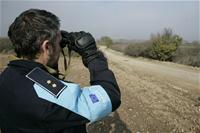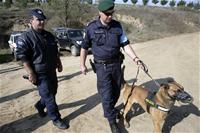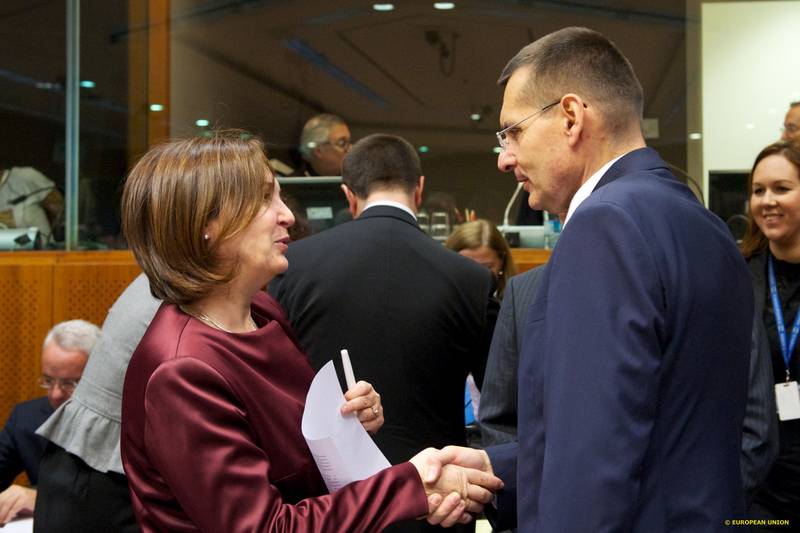Greece is trying to cope with illegal immigrants influx
Evelyna Topalova, January 14, 2011
 Bad hygiene conditions and congested cells, lack of enough toilet facilities and even a place to sleep. This is a fragment of the picture of Greek overcrowded detention facilities for illegal immigrants as described in Human Rights Watch's December report.
Bad hygiene conditions and congested cells, lack of enough toilet facilities and even a place to sleep. This is a fragment of the picture of Greek overcrowded detention facilities for illegal immigrants as described in Human Rights Watch's December report.
In the past several months Greece has been harshly criticised for its policy towards illegal immigrants and sluggish asylum reviewing procedures. This could change with a draft overhaul of the immigration rules.
The reform envisages setting up of a new service in charge with asylum seekers and introduces a procedure for appealing rejected requests. Associated Press reports that Greece is facing a backlog of some 47,000 asylum applications with the reviewing procedure lasting in some cases for years. The legislation overhaul also foresees an easier procedure for repatriation of those people who are not entitled to asylum. It also clears the way to use old military bases as detentions facilities.
Last year Greece saw a record influx of illegal immigrants entering its territory via the land border with Turkey in the area of the Evros River and willing to continue their way to Europe. The Greek Citizens' Protection Ministry says that nine out of ten immigrants use Greece as an entry point to get to Europe. Unofficial estimations put the number of illegal immigrants in Greece at about 350,000 people. The situation with the big number of illegal immigrants is also due to the EU immigration rules.
Under the Dublin II Regulation, people seeking asylum should apply for it in the first EU country they had entered in. Thus Europe sends them back to the country which is responsible for examining their asylum application, in this case Greece. The aim of the regulation is to prevent migrants to apply for asylum in several EU member states simultaneously, hoping to get an approval in at least one. For Greece however this means higher expenses and involvement of its police forces in dealing with the problem.
Facing the heavy problem, Athens had no other way but to ask the EU for assistance
In early November the EU border agency, Frontex, deployed a 175-strong team at the Greek-Turkish border to help Greek authorities in their efforts to cope with the influx. It was the first time that rapid intervention border teams RABIT were deployed since they were created in 2007 and their mandate had been extended until March. The joint activities proved to have restraining effect, although problems still persist.
March. The joint activities proved to have restraining effect, although problems still persist.
The Greek authorities have announced recently their plan to build a 12.5-km fence along the border with Turkey to stop the influx of immigrants. Similar fence has been built by the US along part of its border with Mexico. Athens' intention was sharply criticised by several human rights groups who said that, instead of building walls, the country should overhaul its asylum system. An interesting fact is that Turkey did not react the same way but voiced concern over growing number of immigrants. Turkish Prime Minister Recep Tayyip Erdogan even said that it should not be called a wall but rather a barrier.
Greece in its turn blamed some EU countries of hypocrisy, especially those who criticise its failure to cope with illegal immigrants while at the same time slam the plan to build the fence.
Bulgaria and Romania have to prepare themselves very well in order to avoid such a scenario. Their membership in the Schengen area is being delayed until the autumn but in the meantime the two countries must prove that they are able to manage Schengen's exterior borders, because this would mean that our country might face the same problem as our Greek neighbours.
 Werner Faymann, Angela Merkel | © Council of the EU
Werner Faymann, Angela Merkel | © Council of the EU Rumyana Bachvarova, Petre Toba | © Council of the EU
Rumyana Bachvarova, Petre Toba | © Council of the EU Meglena Kuneva | © Council of the EU
Meglena Kuneva | © Council of the EU